Activists launch hard-hitting blood donation inequality campaign with Pride flags
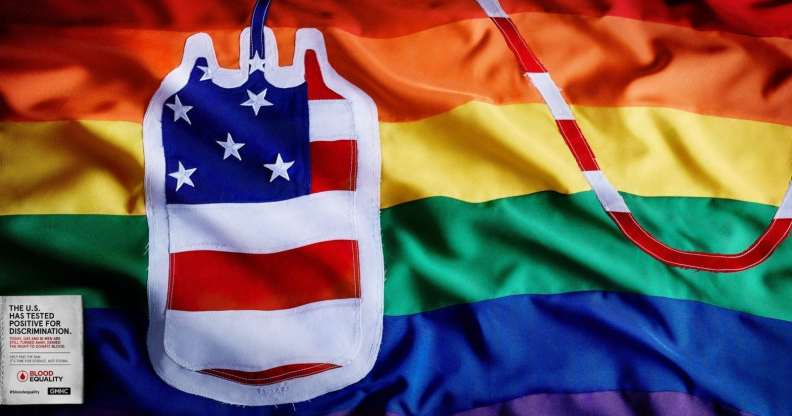
A new awareness initiative has been launched to highlight blood donation inequality facing gay, bisexual and transgender men across the world.
The latest effort is part of the Blood Equality campaign – launched by advertising agency FCB Health and the Gay Men’s Health Crisis – last year.
The initiative sees the rainbow Pride flag adorned with a blood collection bag and tube. Each of these blood bags is stitched in the colours of a country that discriminates against gay, bisexual and transgender men from donating blood.
The countries the campaign has targeted are the U.S., Australia, Canada, Brazil and Germany – although there are more countries with discriminatory blood donation laws against gay or bisexual men, and transgender people.
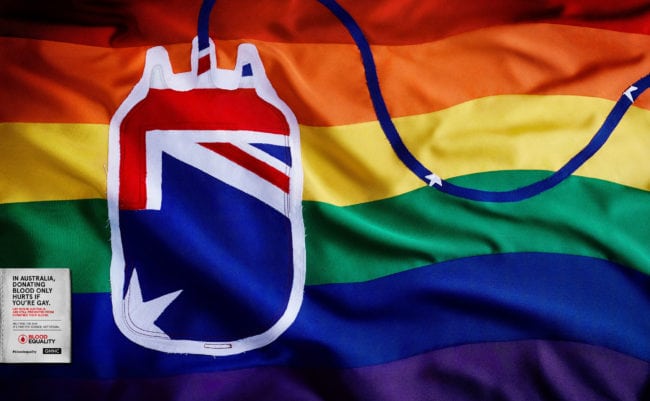
The flag for Australia. (FCB/GMHC)
The organisers of the campaign said they want to “bring attention” to discriminatory laws and “inspire reform.”
They said: “Many countries, including the U.S., Australia, Canada, Brazil and Germany, endorse the fight for equality in marriage, schools, the workplace and housing, yet discriminatory criteria for blood donation remain.
“This altering of the traditional flag design, compounded with the use of exposed thread and stitching, powerfully brings to life the juxtaposition between LGBTQ Pride and discrimination.
“Ultimately, these flags aim to highlight cultural hypocrisy as a call to action, and unite these countries in an effort to advance blood equality on a larger scale.”
Each flag has a powerful message directed towards the country it addresses.
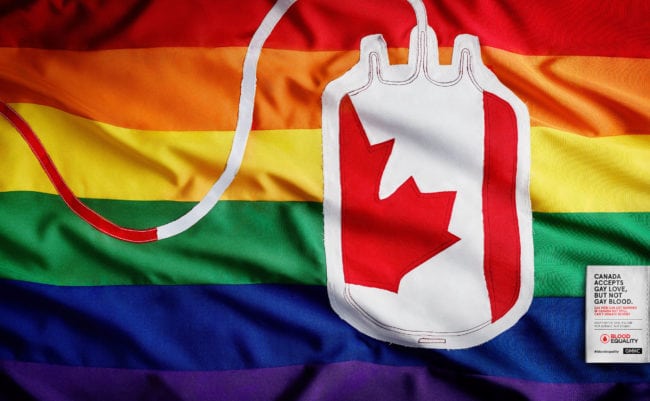
(FCB/GMHC)
Messages include: “In Australia donating blood only hurts if you’re gay,” and: “The U.S. has tested positive for discrimination.”
Other slogans are: “Canada accepts gay love, but not gay blood,” and “How can Brazil be so open-minded and closed-minded at the same time?”
Kelsey Louie, CEO of GMHC, said: “We want to restore the fundamental right to donate blood, and make it a more equitable process across the board.
“Current donation policies stem from fear and outdated stigmas surrounding sexual orientation, when they should instead be based solely on testing and scientific risk assessments.”
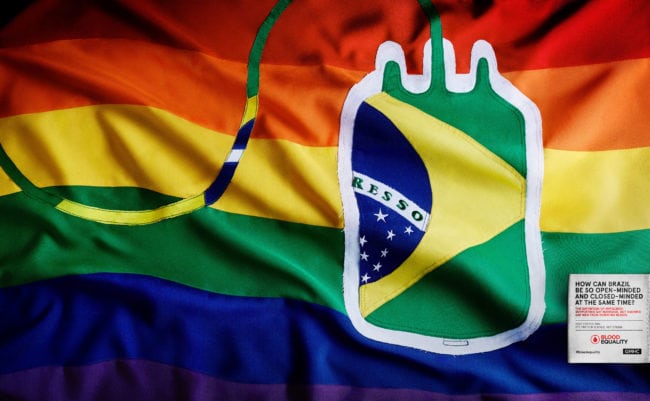
(FCB/GMHC)
The flag addressed to Germany reads: “In Germany, not every Type O is a universal donor.”
Many countries across the worldwide still require gay, bisexual and transgender men to be celibate for a certain period of time – in the US and Canada this is 12 months – before they can give blood.
A study by UCLA Williams Institute study in 2014 found that lifting the time limit in the US could save up to a million lives annually, with an estimated 850,000 pints of blood.
In other countries, like Brazil, gay or bisexual men are banned outright from giving blood.
Last month, Canadian Prime Minister Justin Trudeau said he was “upset” by restrictions that prevent all sexually active gay men from donating blood – and implied he wanted to change the law.
In the UK, men are required to not have gay sex for three months to be eligible to donate blood, after the government relaxed restrictions last year.
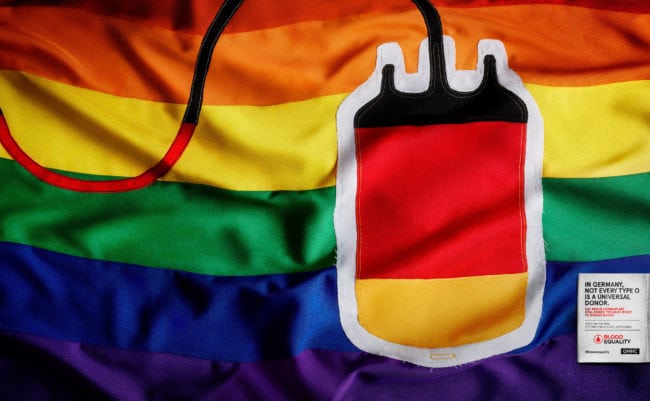
(FCB/GMHC)
The campaign addresses the U.S. Food and Drug Administration’s (FDA) lifetime ban on gay, bisexual and transgender male blood donors, which now requires a 12-month period of celibacy prior to donation.
Rich Levy, chief creative officer of FCB Health, said: “This creative partnership provides us with an important – and unique – platform to advocate for policy reform, change behaviour and make a lasting difference through our work.”
The blood flags initiative will be launched across FCB’s social media channels in the run up to World Blood Donor Day on June 14, and also featured at the GMHC headquarters.

